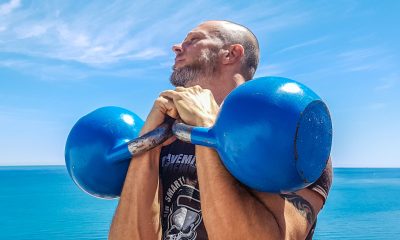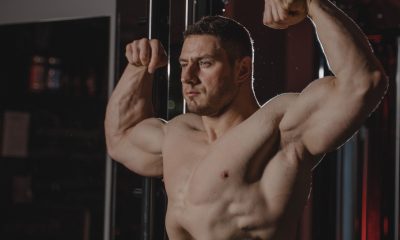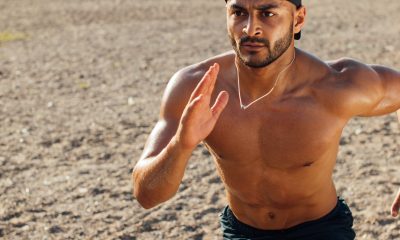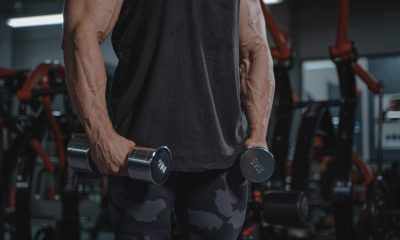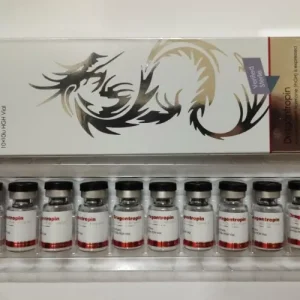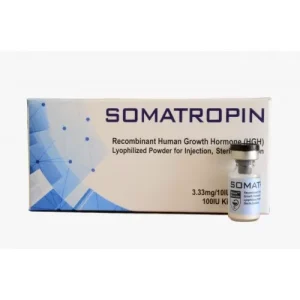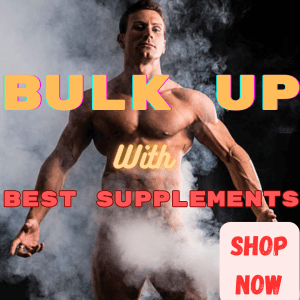Supplements
Do Bodybuilding Supplements Really Work ?
Supplements the magic elixir that's going to put you over the top, turn you into the best right?? Probably not, if you’re relying on supplements to do the work you will probably never make it to the top, but nevertheless, there are a few supplements that have stood the test of time and can be extremely effective in helping you in your performance and physique goals.
Like I said before, food first before using supplements! But here is a list of a few supplements that I really like:
▪ Creatine
▪ Protein Powder
▪ BCAA’s
▪ L Leucine
▪ L Glutamine
▪ Highly Branched Cyclic Dextrins
Creatine:
Creatine is a supplement that has been around for decades and has always been scientifically proven to work at increasing strength and lean body mass. Your body relies on creatine to produce the action of the muscles when lifting weights so supplementing your pre or intra workout supplement with 5-10g of creatine will help with recovery time and allow you to squeeze out a few more reps.
You can also get creatine from steak and all other red meats. This is a good supplement that will help you perform better in the gym. I get a very basic creatine monohydrate and at 240lbs take 10g during training and 5g on non-training days.

Also, is you add 1/3tsp of baking soda with the creatine it will magnify the results of creatine even more. I prefer any brand that is just a micronized creatine monohydrate, I get mine from Dymatize.
Click Here to Check Price Of Creatine
Protein Powder:
Protein powder comes in all shapes and sizes. A lot of new research has come out stating how bad some of the popular brands of protein actually are. A lot of companies use Bcaa fillers to equate to their protein labels which makes the actual protein bioavailability small.
So finding the right kind is extremely important and this is also why I prefer whole food over protein powders. Some good reputable brands are Optimum, Nature’s Best, TrueNutrition, Dymatize, and SlingShot.
Must Read: Whey Protein Explained: Isolate, Concentrate, and Hydrolysate
I recommend two different types of proteins, whey isolate, and casein.
Whey Isolates:

Whey Isolates is a fast absorbing protein which is great to drink pre, during, and post workout. It hits your bloodstream fast and is typically easy to digest so it won’t cause any gut irritation.
When looking for a good whey look for something that is low in fat and carbs. A few brands that I recommend are Dymatize Iso 100, Natures Best Isopure, Slingshot Protein, and Animal Whey.
Click Here to Check Price Of Whey Isolates
Casein:
Casein is a slower digesting protein and is great to use throughout the day but best to use right before bed. The delayed release will allow
your body to use the nutrients throughout the night while you sleep. So they will help spare a lot of muscle breakdown from being in a fasted state while sleeping. A few brands I like are Universal Casein, Dymatize Elite Casein, Ultimate Nutrition Casein.
Click Here to Check Price of Casein
BCAA'S:

BCAA’s are a great supplement to add to your pre, during, and post workout shakes. Plus if you’re cutting weight and are hungry in between meals a BCAA drink will not only suppress appetite but it will allow you to preserve more muscle while dieting.
When you eat protein it is broken down into amino acids to be used/synthesized by your muscles for repair and growth. BCAA’s are just a free form of amino acids that can supplement your protein intake and help with the rebuilding process after a brutal workout.
Taking bet 5-10g pre-workout is a good start. Amino Energy On, Prime Nutrition BCAA’s are two great brands.
Click Here to Check Price Of BCAA’s
L Leucine:

L Leucine as a stand-alone amino acid has been shown to have more of an increase to protein synthesis than any of the other ones. Meaning that its more anabolic in nature.
Leucine also activates mTOR which manufactures muscle proteins to help in the building process. This is a must supplement while dieting as it has been shown to help you lose weight while maintaining muscle mass.
Serving size can be anywhere from 3-10g depending on when you take it and with what you take with it. All Max Nutrition, Prime Nutrition, Dymatize are great brands.
Click Here to Check Price Of L Leucine
L Glutamine:

L Glutamine provides 1/3 of the bodies nitrogen which will help with nitrogen balance throughout the body.
Which helps you recover from muscle damage from workouts. It helps improve with digestion as well along with the absorption of food.
Take around 10-15g per day and bump it up when in high-stress periods. Prima force and Dymatize I highly recommend.
Click Here to Check Price Of L Glutamine
Highly Branched Cyclic Dextrins or HBCD:

Highly Branched Cyclic Dextrins or HBCD is a form of simple carbohydrates that is ideal to consume for your pre-workout nutrition. This is a fast digesting carb but what separates them from all the other fast digest carbs on the market is not only does it digest and absorb fast but due to the cone shape molecule it is it has a higher uptake of nutrients and once it settles down into your stomach it holds the nutrients longer allowing for a longer absorption rate.
So it moves through the body just as fast but it allows your nutrients to get fully distributed before we get rid of them through waste. The great thing about spiking your insulin during and after a workout is two-fold.
One it helps the blunt the process of muscle breakdown, so its easier to recover from workout to workout. Second, it helps speed up the process of muscle repair by shuttling nutrients through your body to induce protein synthesis at a faster rate.
Click Here to Check Price Of Highly Branched Cyclic Dextrins or HBCD
Steroids
AOD-9604: The Fat-Burning Peptide Explained
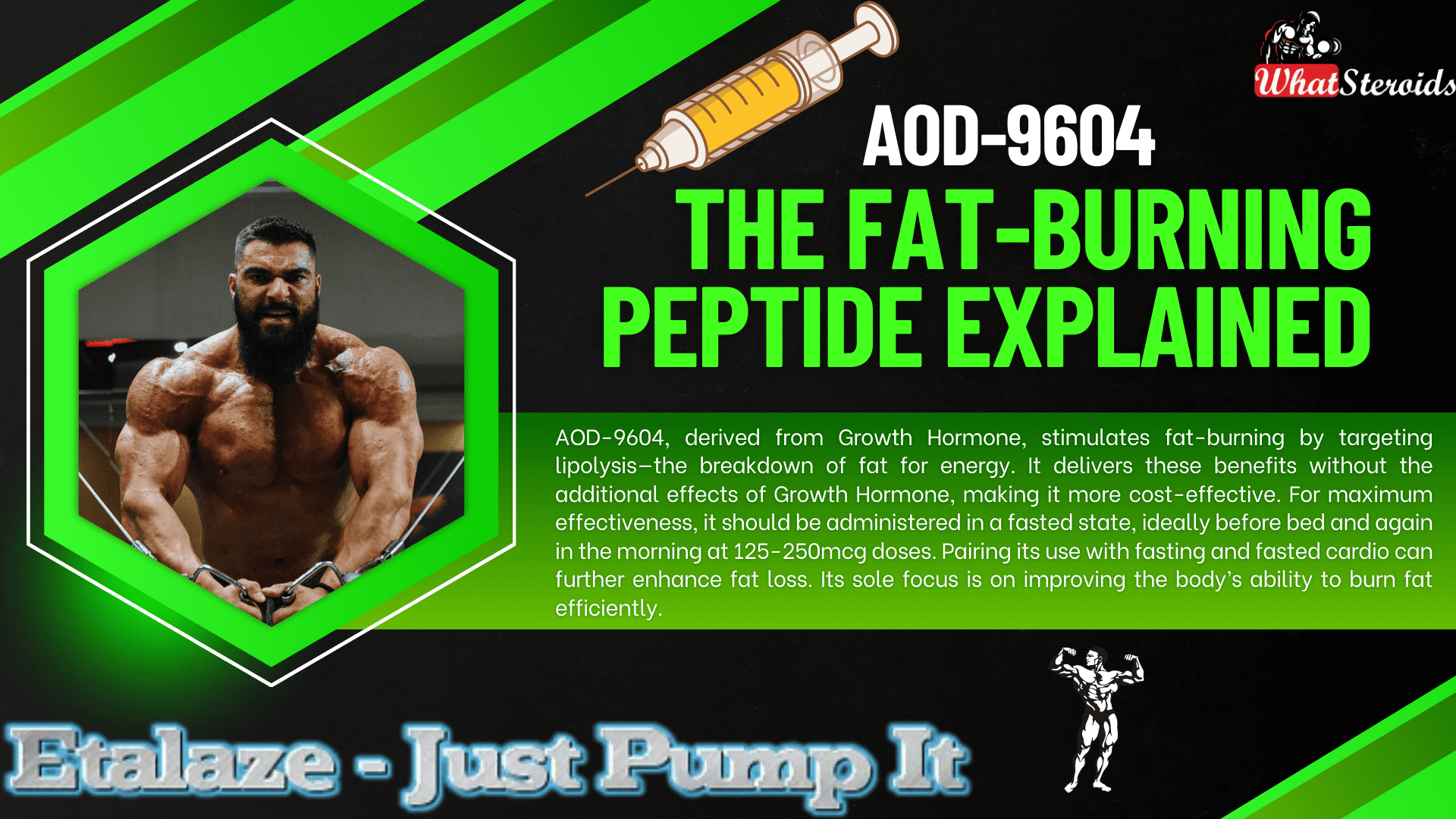
AOD-9604, along with the similar HGH Frag 176-191, is a peptide derived from Growth Hormone that includes only the amino acids in HGH responsible for stimulating fat breakdown, known as lipolysis.
This means that these peptides offer the fat-burning benefits of HGH without its other effects—whether beneficial or adverse—and come at a lower cost.
Related Article: Anavar Cycle for Men and Women
Lipolysis refers to the process where fat cells are broken down to be utilized as energy. AOD-9604 promotes accelerated fat loss by increasing the body's use of fat as fuel.
For optimal results, the peptides should be used in a fasted state. AOD-9604 and Frag 176-191 are most effective when administered at a dose of 125-250mcg before bedtime (at least 3-4 hours after eating) and in the morning at the same dose, followed by a fasting period of 3-4 hours, ideally combined with fasted cardio.
Check Out Dragontropin HGH 100 IU by Dragon Pharma
Similar Peptides with Fat-Burning Effect
Here’s a list of 10 peptides similar to AOD-9604, each with a brief description:
Ipamorelin: A growth hormone-releasing peptide (GHRP) that stimulates the natural release of growth hormone, promoting fat loss, muscle growth, and improved recovery without affecting other hormones like cortisol or prolactin.
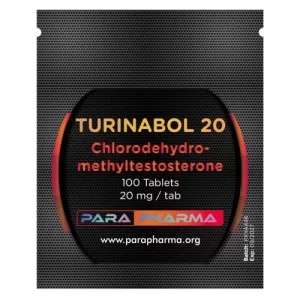 Click Here to Buy: Turinabol 20 by Para Pharma
Click Here to Buy: Turinabol 20 by Para Pharma
CJC-1295: A peptide that increases growth hormone and IGF-1 levels, aiding in fat loss, muscle gain, and improved sleep quality. It has a long half-life, making it convenient for users.
HGH Frag 176-191: A fragment of human growth hormone specifically designed for fat-burning. It targets adipose tissue without the broader effects of full-length HGH.
Tesamorelin: Known for reducing visceral fat, this peptide stimulates the release of growth hormone and is often used for weight management and metabolic health.
BPC-157: While primarily known for healing and recovery, BPC-157 can support fat loss indirectly by improving gut health and reducing inflammation.
Melanotan II: Originally developed for skin tanning, it also has appetite-suppressing properties, making it useful for weight management.
Thymosin Beta-4 (TB-500): Focused on healing and recovery, it can enhance physical performance and indirectly support fat loss through improved activity levels.
GHRP-6: A growth hormone-releasing peptide that boosts appetite and metabolism, aiding in muscle growth and fat loss.
Semaglutide: A GLP-1 receptor agonist that regulates appetite and blood sugar levels, making it effective for weight loss and metabolic health.
MK-677 (Ibutamoren): A growth hormone secretagogue that increases growth hormone and IGF-1 levels, promoting fat loss, muscle gain, and improved recovery.
List of Peptides With a Counteractive Effect Bodybuilders Must Avoid
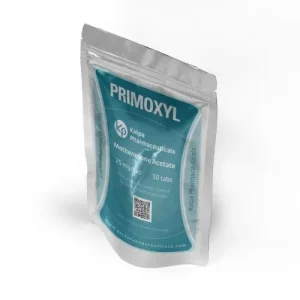 Click Here to Buy Primoxyl 25 by Kalpa Pharmaceuticals
Click Here to Buy Primoxyl 25 by Kalpa Pharmaceuticals
Some peptides can inadvertently lead to fat gain due to their effects on metabolism and appetite regulation. Here are a few that bodybuilders might want to avoid or use cautiously:
- GHRP-6 – While it stimulates growth hormone release, it also significantly increases appetite, which can lead to excess calorie consumption and fat gain.
- IGF-1 LR3 – This peptide enhances muscle growth but can also promote fat storage if not carefully managed with diet and training.
- MK-677 (Ibutamoren) – Though technically a growth hormone secretagogue rather than a peptide, it boosts GH levels but often leads to increased hunger and potential fat accumulation.
- CJC-1295 with DAC – While effective for muscle growth, its prolonged GH release can sometimes lead to unwanted fat retention if not paired with a strict diet
Overall
AOD-9604, derived from Growth Hormone, stimulates fat-burning by targeting lipolysis—the breakdown of fat for energy. It delivers these benefits without the additional effects of Growth Hormone, making it more cost-effective. For maximum effectiveness, it should be administered in a fasted state, ideally before bed and again in the morning at 125-250mcg doses. Pairing its use with fasting and fasted cardio can further enhance fat loss. Its sole focus is on improving the body’s ability to burn fat efficiently.
Read More: How Much Do You Know About B-AET? A Fat Burner You’ve Been Missing
Bodybuilding
Understanding Trenbolone-Induced Cough (“Tren Cough”)
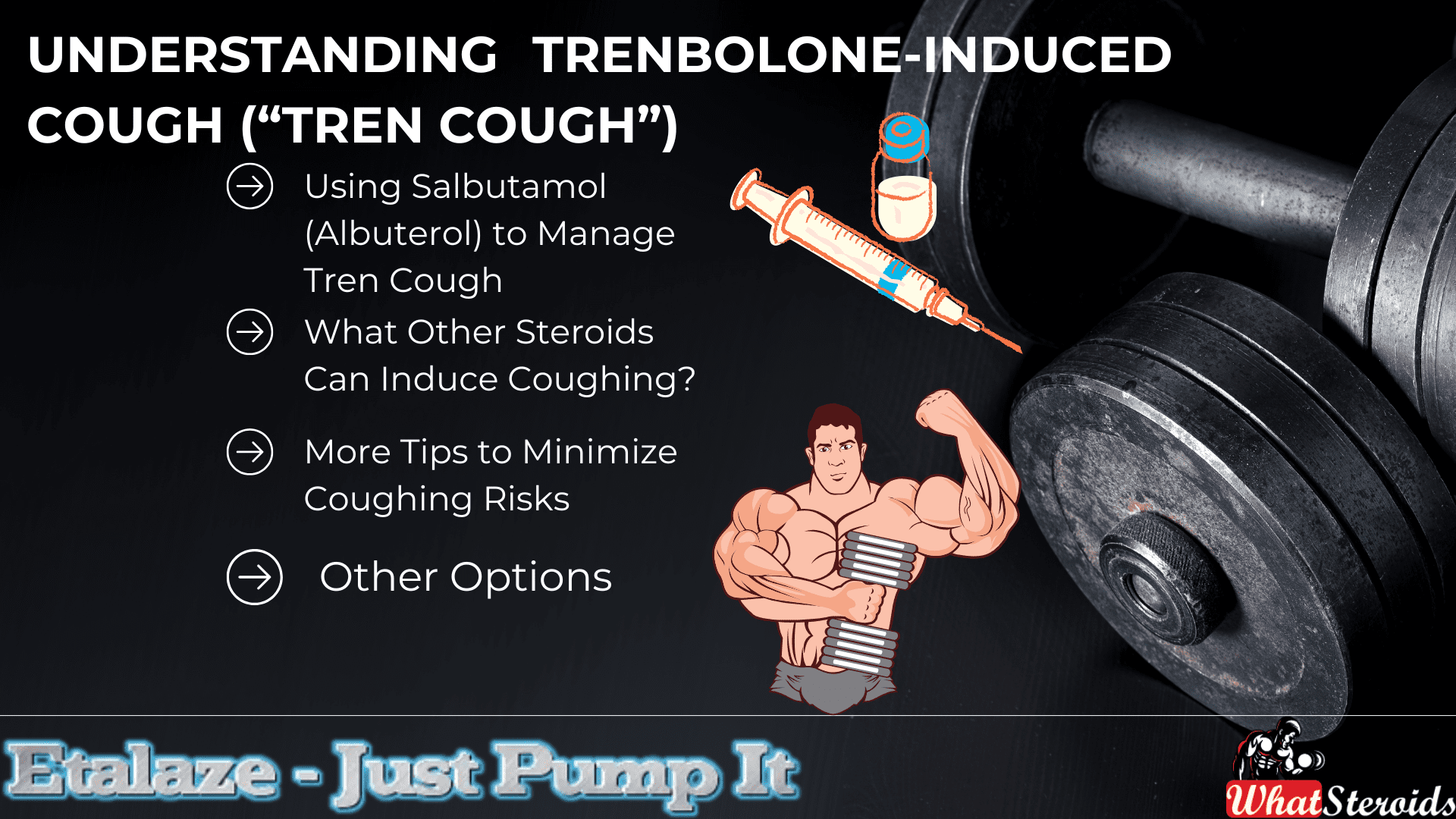
Trenbolone, a potent anabolic steroid, can sometimes cause “tren cough”—a sudden and intense coughing episode shortly after injection. Although not exclusive to Trenbolone, it is more commonly associated with this substance due to its highly irritant nature.
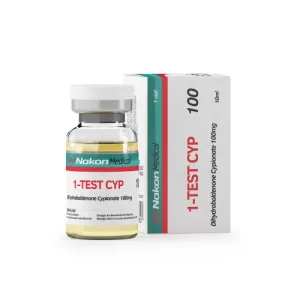 Click Here To Buy 1-Test Cyp 100 by Nakon Medical
Click Here To Buy 1-Test Cyp 100 by Nakon Medical
Mechanisms Behind Tren Cough
Solvent and Carrier Irritation
Trenbolone formulations often include volatile solvents like benzyl alcohol or benzyl benzoate, which may irritate lung tissues when absorbed quickly into systemic circulation.
Prostaglandin Release
Trenbolone promotes increased production of prostaglandins, particularly PGF2α. This compound triggers contraction in the smooth muscles of the lungs, leading to bronchoconstriction and coughing.
Micro-Oil Embolism
Tiny oil droplets from an injection can reach capillaries and travel to the lungs, causing mild embolic reactions that lead to temporary oxygen deprivation and coughing.
Histamine and Mast Cell Activation
For some individuals, Trenbolone triggers histamine release and mast cell activation, mimicking an allergic response and causing bronchospasms and cough reflexes.
Related Article: Best Syringes for Steroid Injection on Amazon
Using Salbutamol (Albuterol) to Manage Tren Cough
- Salbutamol, a widely-used β2-adrenergic receptor agonist, can alleviate tren cough symptoms by:
- Relaxing bronchial muscles, easing spasms that cause coughing.
- Inhibiting prostaglandin effects, reducing bronchoconstriction associated with PGF2α.
- Opening airways, preventing severe respiratory restrictions in susceptible individuals.
Application Methods
Inhaler (Optimal)
Take 1–2 puffs of salbutamol (100–200 mcg) 5–10 minutes before a Trenbolone injection. If coughing occurs afterward, additional puffs can swiftly resolve the issue.
Oral Tablets (Moderate)
Consuming 2–4 mg tablets 30–60 minutes before injection offers slower, longer-lasting relief but may be less effective than inhalation methods.
Nebulizer (Severe Cases)
For individuals with frequent episodes, nebulized doses of 2.5 mg salbutamol can provide substantial relief.
Preventive Measures to Reduce Tren Cough Risk
- Inject slowly to minimize systemic absorption and irritant effects.
- Split doses to lower reaction severity with smaller quantities.
- Opt for ventrogluteal injection sites, which have fewer blood vessels, reducing oil embolism risk.
- Choose lower-concentration solutions to lessen irritation, as higher concentrations (e.g., Tren Ace 200 mg/ml) are more likely to provoke reactions.
What Other Steroids Can Induce Coughing?
Here's a curated list of peptides, SARMs, and PEDs that may potentially cause coughing or respiratory irritation in bodybuilders and fitness enthusiasts:
Peptides
IGF-1 LR3 (Insulin-like Growth Factor): Known for its anabolic effects, IGF-1 LR3 can occasionally cause mild respiratory irritation due to systemic absorption.
TB-500 (Thymosin Beta-4): While rare, improper injection techniques or high doses may lead to transient coughing episodes.
GHRP-6 (Growth Hormone-Releasing Peptide): This peptide can stimulate histamine release, potentially leading to bronchospasms and coughing.
SARMs (Selective Androgen Receptor Modulators)
RAD-140: (Testolone) Some users report throat irritation or coughing, often attributed to solvents used in liquid formulations.
YK-11: Known for its myostatin-inhibiting properties, YK-11 may cause mild respiratory discomfort in sensitive individuals.
LGD-4033 (Ligandrol): Though uncommon, some users experience coughing due to carrier solvents or allergic-like reactions.
PEDs (Performance-Enhancing Drugs)
Boldenone Undecylenate (Equipoise): This injectable steroid can cause “Equipoise cough,” similar to tren cough, due to oil embolism or irritant solvents.
Testosterone Suspension: The water-based formulation may lead to coughing episodes if injected improperly or absorbed rapidly.
Nandrolone Decanoate (Deca-Durabolin): While less common, coughing can occur due to histamine release or systemic irritation.
More Tips to Minimize Coughing Risks
- Use proper injection techniques to avoid embolic reactions.
- Opt for lower-concentration solutions to reduce irritant effects.
- Consider antihistamines or bronchodilators for individuals prone to respiratory sensitivity.
Read More: Joint Stiffness: How to Manage It While on AAS
Are There Alternatives to Cough-inducing Steroids?
Here are some alternatives to cough-inducing steroids that can provide similar anabolic effects while minimizing respiratory irritation:
Peptides
IGF-1 LR3 (Insulin-like Growth Factor)
Promotes muscle growth and recovery without the irritant properties of certain steroids.
TB-500 (Thymosin Beta-4)
Enhances tissue repair and reduces inflammation, making it a safer option for recovery.
BPC-157 (Body Protection Compound)
Known for its healing properties, it supports muscle repair and joint health.
SARMs (Selective Androgen Receptor Modulators)
RAD-140 (Testolone)
Provides significant muscle-building effects with fewer systemic side effects compared to traditional steroids.
LGD-4033 (Ligandrol)
Boosts lean muscle mass and strength without the risk of respiratory irritation.
MK-677 (Ibutamoren)
Stimulates growth hormone release, aiding in muscle growth and recovery.
Natural Alternatives
Turkesterone
A plant-based ecdysteroid that supports muscle protein synthesis and recovery.
Ecdysterone
Another natural compound that mimics anabolic effects without the harsh side effects.
Creatine Monohydrate
Enhances strength and muscle mass through improved energy production during workouts.
Other Options
Human Growth Hormone (HGH)
Promotes muscle growth and fat loss, though it requires careful monitoring due to potential side effects.
Testosterone Boosters
Natural supplements like D-Aspartic Acid or Tribulus Terrestris can help optimize testosterone levels for muscle growth.
SARMs Alternatives
Legal and safer versions of SARMs are available, offering similar benefits without the risks associated with traditional SARMs.
Overall
We have explored the phenomenon of "tren cough," a sudden, intense coughing episode often caused by Trenbolone injections due to factors like solvent irritation, prostaglandin release, micro-oil embolism, or histamine activation. Preventive measures such as using salbutamol (via inhaler, oral tablets, or nebulizer), injecting slowly, splitting doses, and opting for lower-concentration solutions were highlighted.
Additionally, alternative compounds to tren cough-inducing steroids were discussed, including peptides like IGF-1 LR3 and TB-500, SARMs such as RAD-140 and LGD-4033, and natural options like Turkesterone, ecdysterone, and creatine. These alternatives provide anabolic effects while minimizing respiratory side effects. The conversation also underscored the importance of proper injection techniques and thoughtful compound selection to reduce risks.
Steroids
Creatine vs Myostatin: An Expert’s Analysis
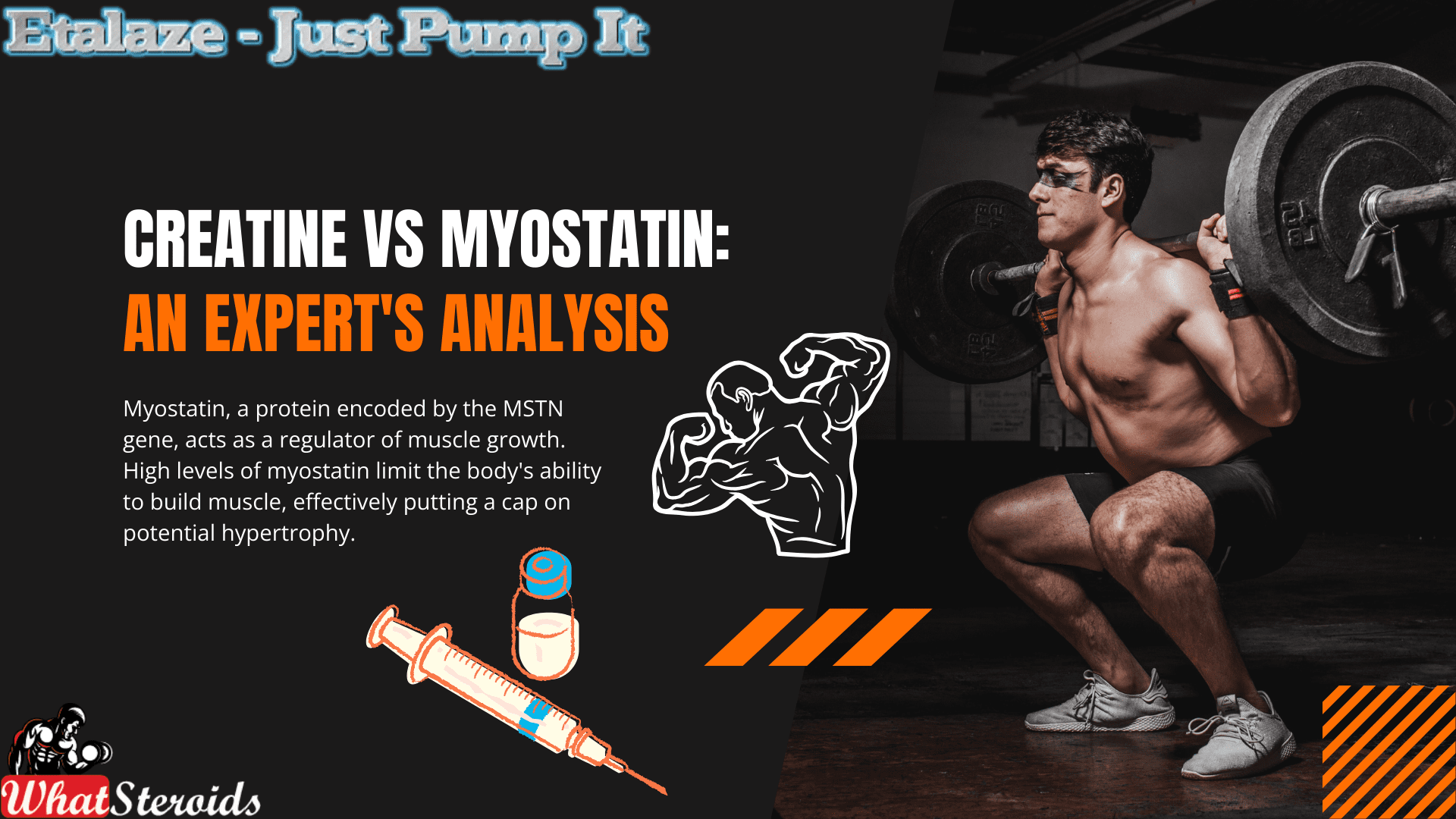
Myostatin, a protein encoded by the MSTN gene, acts as a regulator of muscle growth. High levels of myostatin limit the body's ability to build muscle, effectively putting a cap on potential hypertrophy. Inhibiting myostatin has become a focal point for bodybuilders looking to break through plateaus and achieve significant muscle gains. The question is: can creatine, a popular and widely available supplement, help in this regard?
Medical History of Myostatin and Creatine
Myostatin and creatine, while popular now in the bodybuilding world, have their roots in entirely different contexts:
Myostatin: Natural Muscle Growth Regulator
Myostatin is a protein originally identified for its role in regulating skeletal muscle mass. In nature, it serves an evolutionary purpose: by limiting muscle growth, it conserves energy, ensuring that animals (and humans) don’t expend unnecessary resources maintaining excessive muscle tissue. This was especially important in the wild, where energy efficiency could mean the difference between survival and extinction.
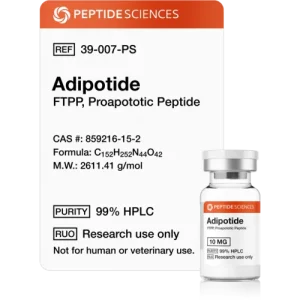 Check Adipotide (FTPP) 10mg by Peptide Science
Check Adipotide (FTPP) 10mg by Peptide Science
In the medical field, research into myostatin has focused on its role in muscle-wasting diseases. Scientists are exploring ways to inhibit myostatin to treat conditions like muscular dystrophy, where excessive muscle loss impairs quality of life. This therapeutic potential is where the idea of myostatin inhibition first began—long before bodybuilders latched onto the concept.
Creatine: Energy and Medical Applications
Creatine was originally studied for its role in energy metabolism. It’s a naturally occurring compound stored in muscle cells and plays a critical part in replenishing ATP (adenosine triphosphate), the body’s primary energy currency during short, high-intensity activities.
Before becoming a bodybuilding staple, creatine gained recognition in medical and sports science for its ability to improve athletic performance and assist with recovery. Furthermore, in medicine, creatine was investigated for neurological conditions such as Parkinson’s disease, Huntington’s disease, and muscular dystrophy, given its potential to improve muscle function and brain energy metabolism.
In the sports world, it was initially adopted by sprinters and weightlifters in the 1970s and 1980s for its energy-enhancing benefits.
Both myostatin and creatine have found new life in bodybuilding circles, demonstrating how discoveries in natural physiology and medical science can lead to transformative applications in fitness.
Benefits of Creatine as a Myostatin Inhibitor
Muscle Growth Potential: Research suggests that creatine, when paired with intense resistance training, may inhibit myostatin to a degree, fostering an environment for enhanced muscle growth.
Improved Exercise Performance: Creatine is well-known for its ability to increase ATP production, translating to better performance during high-intensity activities.
Versatility Across Fitness Levels
Whether you're a beginner or an advanced athlete, creatine offers benefits that complement various stages of muscle-building.
Must Read: A New Caffeine? What You Need to Know about Teacrine
Affordability and Accessibility
Compared to specialized myostatin inhibitors like YK-11 and ACE-031, creatine is significantly more affordable and accessible.
Side Effects of Creatine
While generally safe for most individuals, creatine supplementation does come with some potential side effects:
Water Retention: Some users experience bloating due to increased water retention in muscle cells.
Gastrointestinal Issues: High doses may lead to stomach upset or diarrhea.
Kidney Concerns: Although rare, prolonged excessive use could strain the kidneys, particularly in individuals with pre-existing conditions.
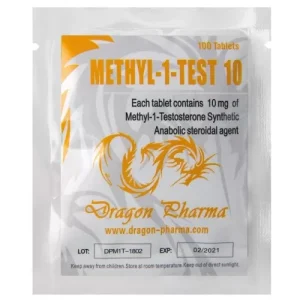 Buy Methyl-1-Test 10 -100 tabs by Dragon Pharma
Buy Methyl-1-Test 10 -100 tabs by Dragon Pharma
Alternatives to Creatine for Myostatin Inhibition
YK-11: A synthetic myostatin inhibitor derived from SARMs, offering more potent results but accompanied by more significant risks.
ACE-031: A peptide that directly inhibits myostatin, though it remains in experimental phases and is not legally approved in many regions.
Natural Alternatives
Follistatin-rich Foods: Eggs and dairy products may have natural myostatin-inhibiting properties.
Resistance Training: Intense and consistent weightlifting alone can naturally lower myostatin levels.
Where to Buy Creatine
Creatine is readily available worldwide. It can be purchased from:
Local Pharmacies and Nutrition Stores: Ideal for trusted and immediate access.
Online Platforms: Websites like Amazon, iHerb, or bodybuilding-specific stores offer a variety of brands and formulations.
Supplement Brands: Well-established brands such as Optimum Nutrition, MyProtein, and Cellucor often carry high-quality creatine.
Legality of Myostatin Inhibitors
Creatine: Creatine is completely legal and widely accepted as a dietary supplement.
YK-11 and ACE-031: These compounds exist in a legal gray area in many countries due to their experimental nature and potential risks. It's essential to research local laws before considering these options.
Best Stores and Suppliers
For reputable products, consider:
Transparent Labs: Known for purity and transparent labeling.
Optimum Nutrition: Offers pharmaceutical-grade creatine monohydrate.
Bulk Supplements: A great choice for bulk buyers seeking affordability and quality.
Our Advice to Bodybuilders
Always consult with a healthcare professional before starting any new supplement, especially if you are already using AAS or other advanced compounds.
Prioritize a balanced diet and consistent exercise routine. Supplements like creatine work best as part of a holistic approach to fitness.
Stay hydrated while using creatine to minimize water retention side effects and support kidney health.
Related Article: Best Syringes for Steroid Injection on Amazon
Overall
While creatine may not be as potent a myostatin inhibitor as advanced compounds like YK-11 or ACE-031, its affordability, safety, and accessibility make it a valuable addition to any bodybuilder's supplement stack. By leveraging its benefits alongside proper training and nutrition, you can maximize muscle growth and overcome plateaus, regardless of your fitness level.
-
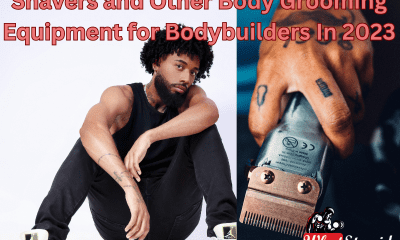
 Steroids2 years ago
Steroids2 years agoShavers and Other Body Grooming Equipment for Bodybuilders In 2023
-

 Steroids2 years ago
Steroids2 years agoChatGPT and Other Avenues to Find Great Bodybuilding Coaches
-
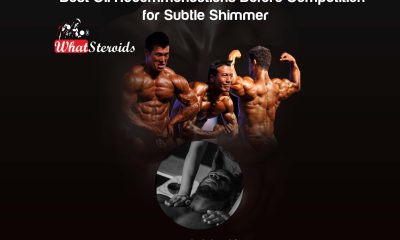
 Steroids2 years ago
Steroids2 years agoBest Oil Recommendations Before Competition for Subtle Shimmer
-
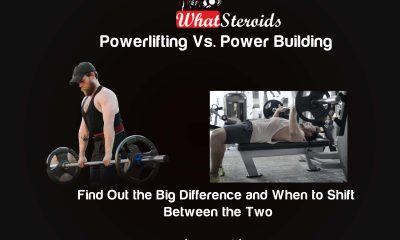
 Steroids2 years ago
Steroids2 years agoPowerlifting Vs Power Building: Find Out the Big Difference and When to Shift Between the Two
-
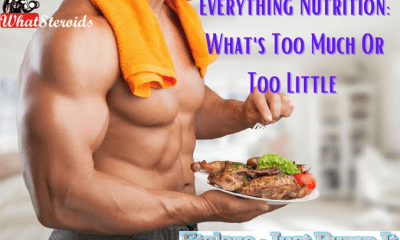
 Nutrition2 years ago
Nutrition2 years agoEverything Nutritional Food: What’s Too Much Or Too Little
-
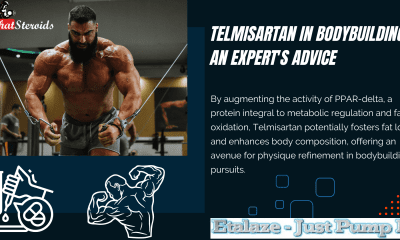
 Bodybuilding Products1 year ago
Bodybuilding Products1 year agoTelmisartan In Bodybuilding: An Expert’s Advice
-
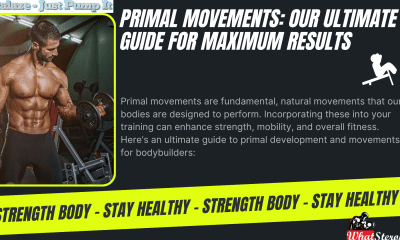
 Bodybuilding8 months ago
Bodybuilding8 months agoPrimal Movements: Our Ultimate Guide for Maximum Results
-
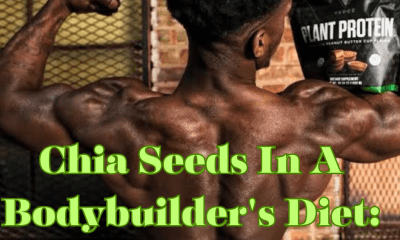
 Bodybuilding1 year ago
Bodybuilding1 year agoChia Seeds in A Bodybuilder’s Diet: An Expert’s Advice
-
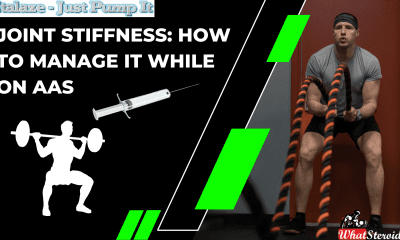
 Anabolic Steroids10 months ago
Anabolic Steroids10 months agoJoint Stiffness: How to Manage It While on AAS
-
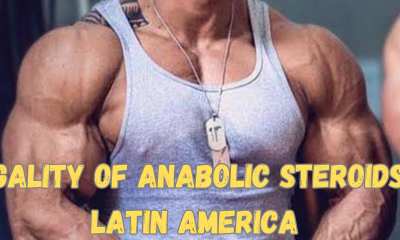
 Anabolic Steroids1 year ago
Anabolic Steroids1 year agoLegality of Anabolic Steroids In Latin America
-
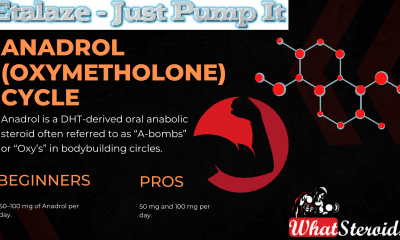
 Steroids1 year ago
Steroids1 year agoAnadrol Cycle: Benefits, Doses, Alternatives, etc.
-
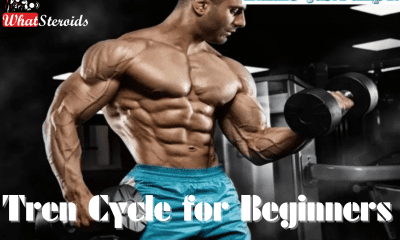
 Beginners2 years ago
Beginners2 years agoTren Cycle for Beginners
-
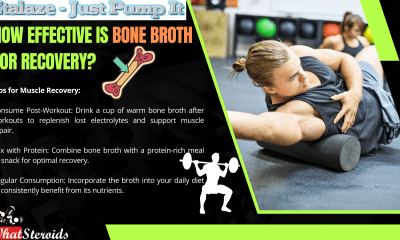
 Bodybuilding9 months ago
Bodybuilding9 months agoHow Effective is Bone Broth for Recovery?
-
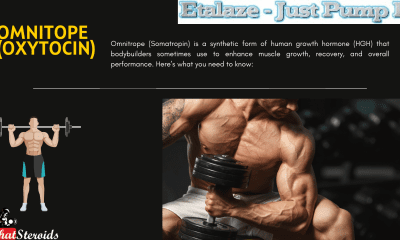
 Steroids10 months ago
Steroids10 months agoOmnitope (Oxytocin)
-
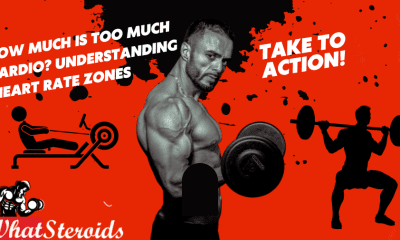
 Bodybuilding1 year ago
Bodybuilding1 year agoHow Much Is Too Much Cardio? Understanding Heart Rate Zones
-
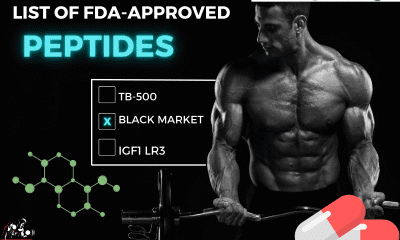
 Bodybuilding1 year ago
Bodybuilding1 year agoList of FDA-Approved Peptides
-
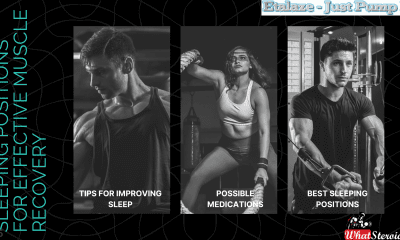
 Steroids9 months ago
Steroids9 months agoSleeping Positions for Effective Muscle Recovery
-
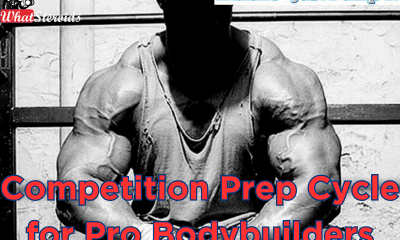
 Bodybuilding2 years ago
Bodybuilding2 years agoCompetition Prep Cycle for Pro Bodybuilders
-
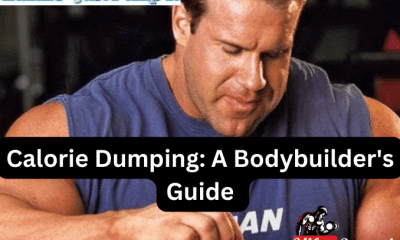
 Bodybuilding1 year ago
Bodybuilding1 year agoCalorie Dumping: A Bodybuilder’s Guide
-
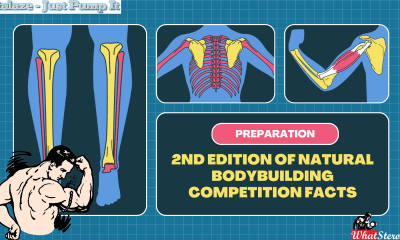
 Bodybuilding8 months ago
Bodybuilding8 months ago2nd Edition of Natural Bodybuilding Competition Facts
-
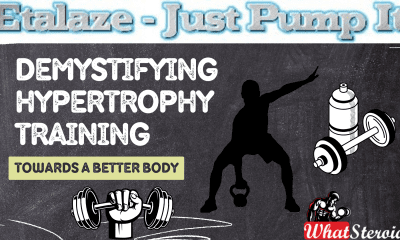
 Bodybuilding1 year ago
Bodybuilding1 year agoDemystifying Hypertrophy Training
-
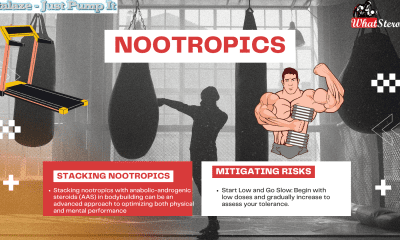
 Bodybuilding9 months ago
Bodybuilding9 months agoAre Nootropics a Better Option to AAS?
-
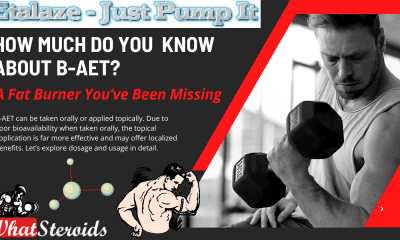
 Anabolic Steroids12 months ago
Anabolic Steroids12 months agoHow Much Do You Know About B-AET? A Fat Burner You’ve Been Missing
-
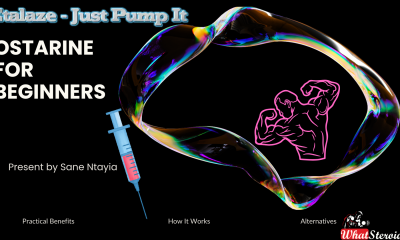
 Steroids4 months ago
Steroids4 months agoOstarine For Beginners: The Ultimate Guide
-

 Product Reviews12 months ago
Product Reviews12 months agoTop Vitamins for Skin Health




